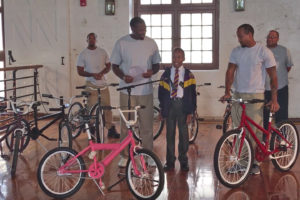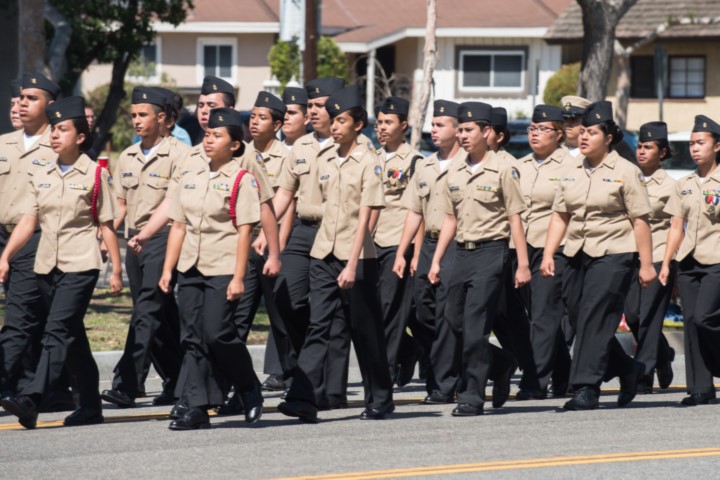Illinois’ Elgin Area School District U-46 is weighing the benefits and drawbacks of launching a Junior Reserve Officers Training Corps program, something local veterans strongly support.


Illinois’ Elgin Area School District U-46 is weighing the benefits and drawbacks of launching a Junior Reserve Officers Training Corps program, something local veterans strongly support.
“The primary goal of the program is to motivate young people to be better citizens,” Craig Essick, Elgin American Legion commander and former police officer, told the Daily Herald. “We cannot think of a better goal for U-46 students as they pursue an education and learn the true meaning of citizenship and service to our communities.”
U-46 could join several other suburban Chicago school districts that already have Air Force, Army, or Navy JROTC programs. Those programs are overseen by certified instructors and military officers who guide students to develop life skills, discipline, organization, confidence, and leadership abilities. JROTC students also learn about the military, history, international law, current events, aerodynamics and physical sciences through a variety of activities, from flying with local flying clubs to academic, marksmanship and robotics teams, according to the news site.
“There are some kids who just may not be athletes, or science club doesn’t spark them,” said Jeff Morse, a Desert Shield veteran who has taught the Navy JROTC program at Northwest Suburban High School for 24 years. “But they get into ROTC and they find something they can be good at, and it just changes them. It’s got something to offer to just about anyone with any background.”
Much of the program centers on character and service, West Aurora High School Air Force JROTC Lt. Col. Erik Pettyjohn said.
“We do have high expectations of behavior,” said Pettyjohn, who teaches aerospace science. “It offers a lot of structure. We basically use Air Force customs and traditions to instill good character, honesty, integrity, service and excellence. …
“A lot of time students won’t get that type of instruction, mentorship in other areas,” he told the Daily Herald.
Carter Bell, the retired Army major who runs Waukegan High School’s 100-year-old Army JROTC program, stressed the program’s benefit to the community. Waukegan’s 600 student cadets – the second-largest program in the nation – help with park clean ups, guide 5K races, serve at pancake breakfasts, and volunteer at parent-teacher conferences, among many other things, he said.
“The purpose of a leader is to serve others,” Bell said. “Last year, we contributed over 5,000 hours of community service to Waukegan. High school (Army) ROTC cadets contributed more than 7 million hours of community service to the nation.”
Researchers at the Institute for Advanced Studies in Culture point to the importance of a “thick” and “dense” moral culture like the JROTC in “The Content of Their Character,” a summary of research into character education in a wide variety of schools.
Through numerous interviews and observations, researchers noted “the source and setting for moral and civic education matter – that the ‘thickness’ of cultural endowments and the ‘density’ of moral community within which those endowments find expression are significant in the formation of personal and public virtue in children.”
The U.S. Army website provides more details about the benefits of the ROTC program, and military service in general, including ways students can secure financial assistance to pursue a college degree while still in high school.